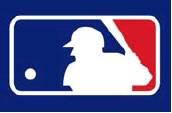MLB
CLEVELAND (AP) — Picture this, baseball fans. All-Star Game tied 4-all Tuesday night at Progressive Field, flamethrower Aroldis Chapman set to face rookie sensation Pete Alonso to start the top of the 10th inning.
But, wait! Before the first pitch, Kris Bryant casually trots from the National League dugout to take a lead off second base.
"Kind of weird," offered Jeff McNeil, the majors' top hitter this year.
Already employed in the minors, the World Baseball Classic and Olympic softball, a new rule takes effect this week in front of a major league audience:
Every extra inning in All-Star play — top half and bottom — begins with an automatic runner at second.
"Oh, they are doing it?" asked Atlanta manager Brian Snitker, an NL coach.
Yes, they are.
The crowd in Cleveland got a glimpse of the future, maybe, on Sunday night when the Futures Game used the rule for an inning. No one scored, and the showcase for young talent wound up in a tie.
Could be timely in the bigs, too. The last two All-Star Games both went extras — Robinson Cano hit a leadoff homer in the 10th at Miami in 2017, Alex Bregman did the same last year in Washington.
Plus, there was the 15-inning affair at Yankee Stadium in 2008 and the dreaded 2002 game in Milwaukee that was declared a very unpopular tie after the 11th.
Naturally, in a sport where change comes slowly, not everyone is thrilled with this experiment. To many, instant intentional walks, constant shifts and talk about robot umpires has skewed the game enough.
If it's any consolation, commissioner Rob Manfred says there are no foreseeable plans to put free runners on base in the regular season.
"I know how people are against it, especially players in the game. Yeah, the tradition is big in this sport, just like a lot of top-tier sports," Baltimore pitcher John Means said.
An All-Star this year, Means saw the test firsthand last year at Triple-A. So did Tampa Bay All-Star outfielder Austin Meadows.
"I might have been a runner on second, but I've definitely seen it happen a lot," Meadows said.
"I don't think it's a bad idea at all. We're going to play nine innings and get on with the second half," he said.
Some teams actually tried this out during spring training, starting with ties in the ninth. San Francisco manager Bruce Bochy was the first to give it a go — mass confusion ensued, mostly because he forgot to tell his players what was happening.
Oakland right-hander Liam Hendriks realizes he could be on the spot Tuesday night.
"It's not an ideal scenario for a reliever because we're the ones that get stuck with it," he said. "You're coming into a situation already with the guy on base in a tie game, there's so many possibilities that can happen."
"I understand the reasoning behind it, like in the All-Star Game, to kind of shorten the game up, theoretically," he said. "You don't have as many pitchers in the game. You don't have a starter going five, six, seven, eight innings."
He's willing to give it a try.
"For the All-Star Game, I understand it. And now with home-field advantage not being decided by it, I don't think it's the worst thing in the world," he said.
The automatic runner will be the player who made the last out of the previous inning. But in a caveat, players who have left the All-Star Game can reenter to run.
For official scoring purposes, if a freebie scores, it will count as an unearned run. Meaning, in theory, a team could pitch a perfect game and still lose.
As for strategy, what to do with that runner? Definitely depends on which team is up first.
"There's a lot of different ways you can play it, too. I mean, you can either bunt him over or swing to get him over, or you can try to hit. You've got to play for more than one run there," McNeil said.
That's fine with Alonso, his New York Mets teammate. Alonso has hit 30 home runs this season — he's never put down a sacrifice in college, the minors or the majors, and isn't about to start now, even if he leads off the 10th with a runner on second.
"I'm not going to bunt, that's for sure," he said. And, he doesn't think Major League Baseball should change its approach.
"For me, I'm kind of an old-school guy. I like just playing it like a regular game. I think that's kind of the most natural way to go about it," Alonso said.
"Since the Civil War, the bags haven't moved, the mound hasn't moved and the rules haven't changed until recently. So I think in the big leagues it should stay the way it is," he said.
– AP Baseball Writer Mike Fitzpatrick, AP Sports Writer Charles Odum and AP freelance writers Mark Didtler, Chris Talbott and Ian Harrison contributed to this report.


